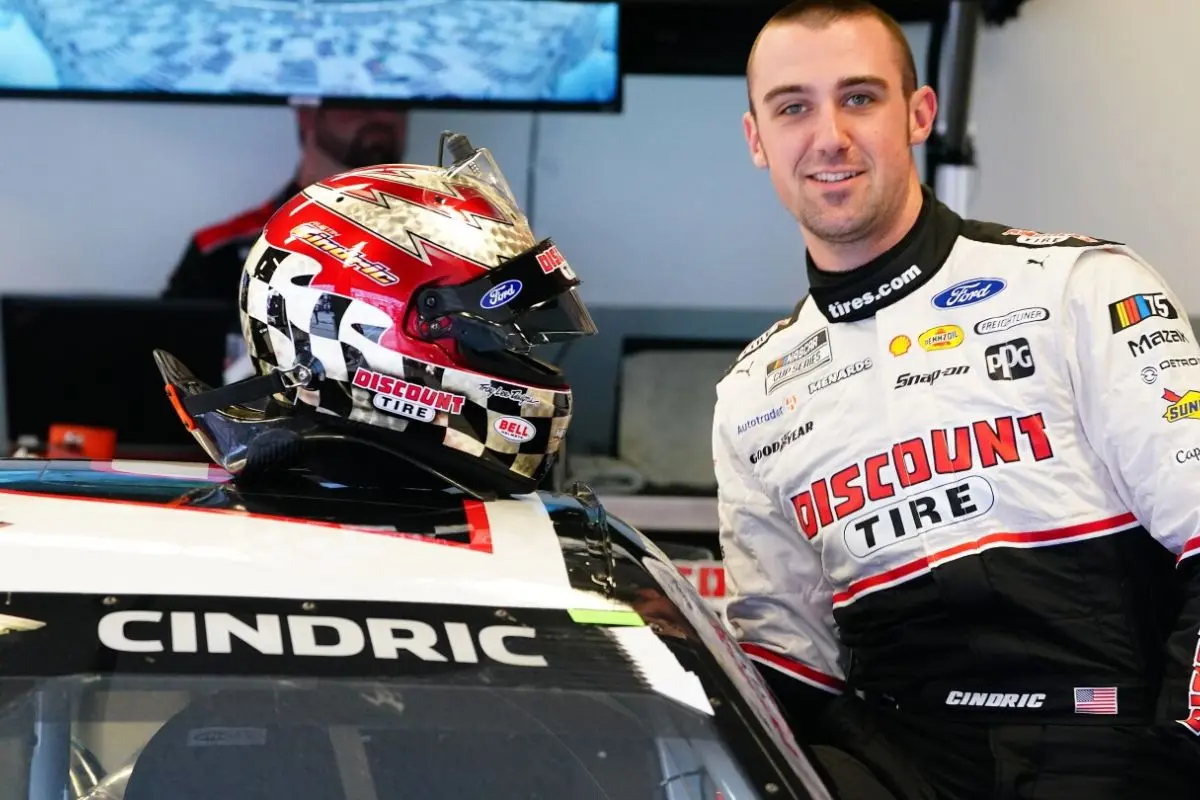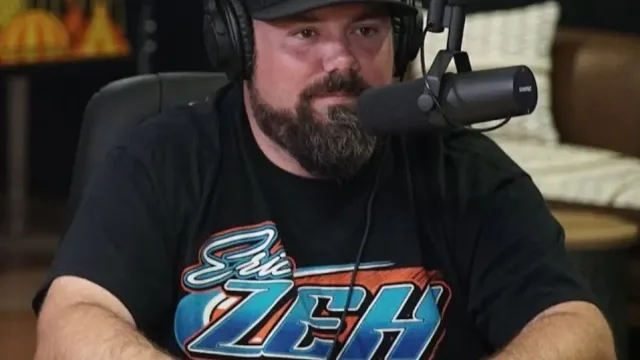Key Highlights
- Freddie Kraft’s tweet critiques NASCAR’s inconsistent penalty enforcement, highlighting frustration among the racing community.
- The tweet sarcastically questions if penalties are determined by the speed of the incident.
- Kraft’s commentary implies a double standard in rule enforcement, affecting perceptions of fairness.
- The critique echoes concerns of bias favoring certain drivers or teams, potentially linked to influence and name recognition.
- The tweet has sparked broader discussions on the need for consistent and transparent penalty systems in NASCAR.
The Incident and Initial Reaction
The NASCAR community, known for its fierce competitiveness and unyielding scrutiny, was once again ablaze with debate following the incident involving Austin Cindric and Ty Dillon.
In a sport where aggression is both a weapon and a hazard, Cindric’s decisive “right-rear hook” tactic against Dillon seemed to echo the ruthless strategies of gladiators rather than mere competitors.
Yet, the penalty—merely a points deduction and a monetary fine—sparked more controversy than resolution. The decision raised eyebrows, suggesting a leniency that perhaps only titans like Roger Penske could inspire.
Fans and insiders similarly pondered whether this slap on the wrist signaled a troubling double standard. One couldn’t help but wonder if NASCAR’s rulebook was written in pencil, subject to convenient edits.
The incident, far from an isolated event, may well serve as a reminder that fairness in racing can sometimes be as elusive as the checkered flag itself.

Freddie Kraft’s Reaction
Amid the uproar following the Austin Cindric and Ty Dillon incident, Freddie Kraft, spotter for Bubba Wallace, stepped into the fray with a tweet that resonated through the NASCAR community like a sharp jab. His biting sarcasm cleverly emphasized the perceived inconsistencies within NASCAR’s rule enforcement.
By questioning the existence of a speed-dependent sliding scale for dangerous driving, Kraft illuminated a concern shared by many: the apparent double standard in NASCAR’s penalty system.
“Jeff can you please ask for an MPH range that we are now allowed to right hook someone? Asking for 36 friends.” – Freddie Kraft
Jeff can you please ask for a MPH range that we are now allowed to right hook someone?
Asking for 36 friends. https://t.co/meWHqAaZ6q
— Freddie Kraft (@FreddieKraft) March 5, 2025
Kraft’s critique, though wrapped in humor, called for urgent introspection within NASCAR governance, challenging them to address the growing discontent and uncertainty among teams.
Kyle Busch’s Perspective
While examining the fallout from the Austin Cindric incident, Kyle Busch, ever the outspoken critic, shared his unfiltered perspective on what he perceives as the glaring inconsistencies within NASCAR’s penalty system.
Busch, a seasoned racer familiar with both sides of disciplinary actions, pointed out that intent should be the primary consideration regardless of the venue. His critical stance highlights a double standard he believes is evident in NASCAR’s decisions.
“I think the intent is intent. I do not agree with the call there, and I don’t care where it is. It doesn’t matter if it’s Daytona, Talladega, Martinsville, or wherever. There’s intent, and it’s not his first offense, either. So, he got off the hook on that one… I mean, I’ve been guilty of it before, and I’ve been sat out of it before. So, you know, maybe it’s all in who your last name is.” – Kyle Busch
Busch’s comments can be distilled into several key points:
- Intent Matters: Regardless of location—be it Daytona or Martinsville—intent should be the decisive factor in penalties.
- Historical Context: Busch recalls his own suspension in 2011, emphasizing how past actions were met with stricter consequences.
- Name Bias: Suggests NASCAR might be lenient towards certain drivers, hinting at favoritism based on last names.
- Consistency in Enforcement: Busch’s own experiences underline his call for uniformity in rule application.

NASCAR’s Explanation and Response
Kyle Busch’s frank critique of NASCAR’s penalty system sets the stage for a closer examination of the organization’s official response, which, unsurprisingly, has sparked its own brand of controversy.
NASCAR, faced with the contentious penalty decision involving Austin Cindric, offered an explanation that raised more questions than answers. The rationale, as articulated by NASCAR managing director Mike Forde, revolved around the “unique” nature of each incident, a statement that, while sounding reasonable, smacked of convenient ambiguity.
“The reason we landed on the points and fine is we take every situation and every violation as its own unique incident, and I know fans probably don’t love hearing that, but it’s said because it’s true. Sure, we do look at past instances to help educate ourselves on how we should handle each subsequent one, but each incident is very different.” – Mike Forde
Citing the slower speeds of road courses and lack of severe damage, NASCAR opted for a $50,000 fine and 50-point deduction, sidestepping harsher sanctions. This decision, however, left many wondering if favoritism played a role, especially given Roger Penske’s considerable influence.
Ty Dillon’s radio remark, though understated, echoed a sentiment felt by many: a palpable frustration with perceived inconsistencies. The garage was left buzzing, skepticism and irony fueling heated discussions.
“I’m not gonna say anything but you know what I’m thinking. That was some absolute bullshit.” – Ty Dillon
The Bigger Picture and Dale Earnhardt Jr.’s View
In the unfolding drama of NASCAR’s penalty inconsistencies, Freddie Kraft’s critique finds an unlikely ally in Dale Earnhardt Jr., whose commentary adds fuel to the already roaring fire of debate.
“They feel like, in their words, it wasn’t that severe because other cars didn’t run into them. So because they were going slower, because there wasn’t a big crash, it didn’t cause a yellow. That’s the way NASCAR views these things. I don’t agree with it.” – Dale Earnhardt Jr.
Earnhardt Jr. questions NASCAR’s logic, noting that the absence of a massive crash or a caution flag should not diminish the severity of an incident. His perspective highlights a glaring inconsistency in NASCAR’s disciplinary approach, evocative of past penalties that were arguably more severe.
- Historical Precedents: Matt Kenseth’s two-race suspension in 2015 and Bubba Wallace’s one-race ban in 2022 spotlight NASCAR’s past stringent measures.
- Current Controversy: The debate centers around the inconsistency in Austin Cindric’s penalty decision.
- Fan Confidence: With such inconsistencies, NASCAR risks alienating its dedicated fanbase.
- Poetic Irony: Kraft’s criticism serves as a poignant reminder of the sport’s fluctuating disciplinary landscape.

News in Brief: Freddie Kraft Takes a Jab at NASCAR’s Rulebook
Freddie Kraft’s tweet, a blunt critique of NASCAR’s perceived double standards, has resonated throughout the garage, emphasizing the sport’s inconsistencies with a mix of frustration and irony. While Kyle Busch offers his own perspective, NASCAR’s response seems to dance around the issue, avoiding direct accountability.
Dale Earnhardt Jr.’s insights further highlight the need for reform, as fans and drivers similarly question the fairness and transparency of the decision-making process. In this high-speed world, consistency should be the true champion.
ALSO READ: Freddie Kraft Confirms Special Guest for DBC Podcast and Fans Can’t Guess Who He Is
